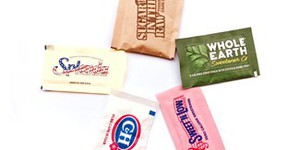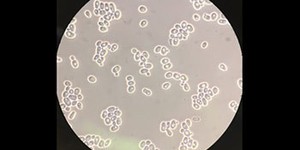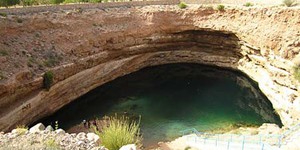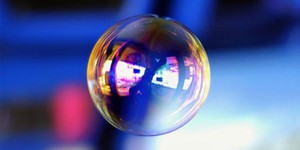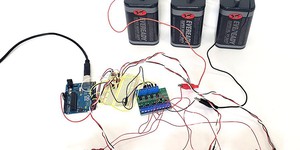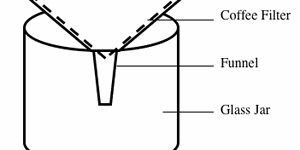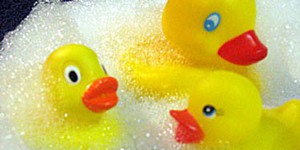Others Like “From Gas to Rust: Measuring the Oxygen Content of Air” (top 20 results)
|
The rates of some chemical reactions can actually be increased by adding light. Light sometimes interacts with one or more of the chemicals and provides an "energy boost" that dramatically speeds up a normally slow reaction. In this photochemistry science project, you will experiment with the effect of light on a chemical reaction. The reaction converts iodine, which forms a dark-orange solution, to iodide, which is colorless!
Read more
There is nothing quite like the smell of fresh-baked bread to make your mouth water! As any baker can tell you, you cannot bake bread without yeast. Yeast actually eat sugar so that they can reproduce and make more yeast, and make bread dough rise. But can they use sugar substitutes to do this? In this science project you will get to investigate how well yeast grow with sugar substitutes as a food source. Pass the butter, please!
Read more
This is a straightforward project on glucose metabolism in yeast. You will grow yeast under aerobic and anaerobic conditions and measure carbon dioxide output to assess metabolic efficiency.
Read more
If you have ever prepared a cup of coffee or tea with sugar, you have probably seen that the grains of sugar quickly dissolve and completely disappear in hot water. But sugar is not the only type of solid that can readily dissolve in a liquid. In fact, there are some types of rocks that can be dissolved by common liquids. It might be hard to imagine large, hard rocks being eaten away by some ordinary fluids, right? But it actually happens all the time! In this geology science project, you will…
Read more
Making your own bubble solution is fun, but sometimes the bubbles don't seem to work as well as the solutions you buy in the store. In this experiment you can test if adding corn syrup or glycerin to your bubble solution will make it just as good as the stuff you can buy. This experiment will have you blowing bubbles!
Read more
A mass driver uses electromagnetics to launch projectiles. In the future, such a device could launch payloads into space without the use of chemical rockets. This could lead to long-term cost savings when launching large amounts of material into space—for example, to construct a space station. In this project you will design and build your own working model mass driver as you learn some of the engineering principles behind how mass drivers operate.
Read more
What is the first thing you do when you wake up on a cold, frosty morning? Snuggle down deeper under the covers? Animals, like puppies and piglets, do not like being cold either, but they do not have hands or blankets to wrap themselves up. So when animals get chilled, they change their behavior and do things like huddle—they curl up close to other animals. In this mammalian biology science fair project, you will see just how much huddling can help reduce heat loss.
Read more
Have you ever mixed together salt and sand? It is fun to see how all of those tiny grains of salt and sand mix together! But what if you had to separate them out again? Do you have nightmares of tiny tweezers, a magnifying glass, and hours spent picking grains of salt and sand apart? Do not be afraid, there is another way! In this chemistry science project you will use the differences in solubility between salt and sand to find out the simple "solution" to this problem.
Read more
This project uses liquid cultures and agar plates to investigate the effects of different concentrations of a food preservative on microbial growth.
Read more
Do you want your hair to be shiny after you wash it? Do you want your clothes to stay bright and soft after laundering, and last a long time? You might think that a special shampoo or detergent can make this happen, but in this chemistry science fair project, you'll discover that how well people and things get clean has a lot more to do with the type of water used for washing than any special shampoo or soap. Did you know that water can be classified as either soft or hard? Soft water lathers…
Read more
|
Explore Our Science Videos
Draw with a Pantograph - STEM Activity
The First Cartoon: Make Your Own Thaumatrope!
Make a Model to Explore the Distance from the Planets to the Sun




